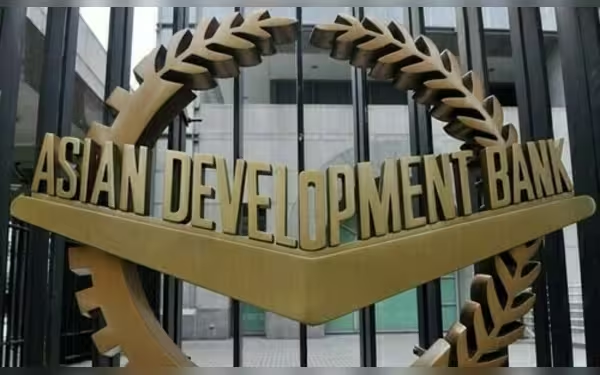Saturday, November 16, 2024 05:37 PM
ADB Highlights IMF Reforms Potential for Pakistan's Economic Growth
- ADB emphasizes IMF reforms for economic stability.
- Reforms could reduce inflation and boost investment.
- Collaboration is key for successful implementation.
 Image Credits: dawn.com
Image Credits: dawn.comADB reports that IMF-supported reforms could enhance Pakistan's economic growth and stability, addressing inflation and fostering investment.
The economic landscape of Pakistan has been a topic of concern for many years, with various challenges impacting growth and stability. Recently, the Asian Development Bank (ADB) has shed light on the potential benefits of the economic reform agenda supported by the International Monetary Fund (IMF). This comes in the wake of a significant three-year, $7 billion aid package deal reached between Pakistan and the IMF in July. The ADB's insights suggest that these reforms could play a crucial role in accelerating growth and easing inflation in the country.
The IMF's Extended Fund Facility (EFF) is designed to provide financial assistance to countries facing economic difficulties. In Pakistan's case, this support is expected to catalyse "significant international financial support" aimed at stabilising the economy and implementing necessary reforms. The ADB's report highlights that these reforms are not just about receiving funds; they are about creating a sustainable economic environment that can foster growth and improve the living standards of the people.
One of the key aspects of the ADB's findings is the emphasis on how these reforms can lead to a more stable economic environment. By addressing issues such as inflation and fostering growth, the reforms can help create jobs and improve the overall quality of life for citizens. This is particularly important in a country where many families struggle to make ends meet due to rising prices and limited job opportunities.
Moreover, the ADB's projections indicate that with the right implementation of these reforms, Pakistan could see a positive shift in its economic trajectory. This could mean not only a reduction in inflation rates but also an increase in foreign investment, which is vital for long-term economic health. The potential for growth is significant, and it is essential for the government and policymakers to stay committed to these reforms.
The ADB's support for the IMF-backed economic reform agenda presents a hopeful outlook for Pakistan's economy. While challenges remain, the path forward appears to be paved with opportunities for growth and stability. It is crucial for all stakeholders, including the government, businesses, and citizens, to work together in embracing these reforms. By doing so, Pakistan can not only overcome its current economic hurdles but also build a brighter future for generations to come.













